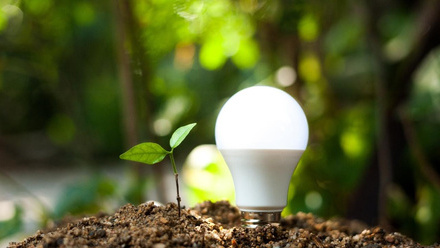10 ways to boost sustainability in your business
The subject of sustainability is finally gaining traction among small business owners, including translators and interpreters. Alicja Tokarska shares what she learnt on a recent Sustainability Basics course.
In February 2022, ITI organised a timely webinar on the topic of sustainability, during which Kate Stansfield offered accessible solutions for both our professional and private lives. Hungry for more, I was over the moon when I saw that Small Business Britain was running a free six-week Sustainability Basics course in April and May. I signed up right away.
Presented in conjunction with Oxford Brookes Business School, the programme brought together business owners from different walks of life and industries. Apart from weekly webinars (which were available to re-watch) and action sheets, there was also a Facebook group, which is still active.
The course was packed with information, but the pace wasn’t overwhelming. We started by learning how sustainability can actually help our businesses, then went on to see how to measure our emissions, assess our downfalls and make changes. The last two sessions focused on offsetting and creating an environmental policy.
Here are ten things I learnt during the course.
1. Measuring energy usage and emissions is key
There are some great emission measuring tools, like the Carbon Footprint Calculator. WWF even has an app which lets you measure your footprint and take part in a sustainable challenge.
You can also invest in smart plugs and measure energy usage of specific devices – that would also help separate private emissions from the business ones.
2. Reducing emissions is possible
Running a T&I business means budgeting for things like CPD, translation software and work trips. However, we rarely think about setting a budget for our emissions.
Once we know how much we’re “spending”, we can see where we could introduce carbon saving measures. For example, can we take public transport to an interpreting assignment instead of driving? Do we have to print each translation draft and revise our work on paper?
3. Efficient heating and energy systems are a must
Insulating your walls, installing new windows or switching to solar panels may be expensive, but it’s worth searching for business grants.
If, like me, you’re working from a rented flat, you might not be able to invest in a more eco-friendly heating system. However, switching to renewable energy and even green gas might be doable (it may be hard to do so at the moment but Couch to Carbon Zero offers great recommendations for the future).
4. Working with local suppliers helps the planet
Each time we buy business cards, printing ink and even food for our working-from-home lunch, we generate emissions. Working with businesses and food suppliers that are based locally cuts the transport emissions and supports our local networks.
Next time you need business cards, check if you can get those printed locally. Finding out where each product on your plate comes from seems like a daunting task? Join a local veg box scheme!
5. Sustainability is about our local communities, too
During the course we were introduced to Sustainable Business Model Canvas, which adds environmental and social layers to the traditional business model.
Although most of us don’t have employees, we can choose to work on socially beneficial projects, reject those that are unethical and try to engage with our local community.
6. Buying new equipment is wasteful
Rather than buying a brand new monitor or a desk, it’s better to choose a pre-loved item. You can try and find refurbished equipment in a regular computer shop, on Gumtree or within a local network. My new Glasgow-based favourite is Remade.
Often people get rid of perfectly good or fixable items. By prolonging their life, we are contributing to a truly circular economy.
7. Emission honesty is the best policy
Being a sustainable business doesn’t mean you generate no emissions – sustainability is a journey and communicating our emissions shows that we acknowledge we have work to do. Sometimes there’s emissions we simply can’t avoid, but speaking about them and explaining our situation helps build trust. After all, nobody’s perfect.
8. Sharing achievements helps the cause
We all know that greenwashing is common for pseudo-eco businesses, but it turns out greenhushing – so not talking about our sustainable wins – can be just as bad.
Communicating the eco-friendly successes of your business isn’t bragging. It helps normalise sustainable efforts among small business owners and can be a source of inspiration.
9. Offset what you can’t reduce
As mentioned, some emissions are a necessary evil. Going to a conference, driving to an interpreting assignment or printing out certified document translations are all part of the business.
However, once you know what kind of emissions you can’t reduce, you can create an offset plan (remember: reducing is always preferable, so don’t simply go on an offsetting frenzy!). You can choose an international programme like Ecologi, a UK-based one like Trees for Cities or search for one that’s specific to where you live. And remember: you need around 500 trees to offset one tone of emissions. An airline adding a £2 offsetting fee to your ticket is a good example of greenwashing.
10. Know where you’re going
Planning is key! Create a sustainability policy for your business and regularly analyse your environmental goals. You’ll find plenty of resources at Small99, a company run by Adam Bastock, one of the Sustainable Basics’ tutor.
The course will run again in September and you can sign up here.
Other helpful links:
Myclimate flight emissions calculator
Myclimate car emissions calculator
Recycle coach, with plenty information on what to recycle and how.






